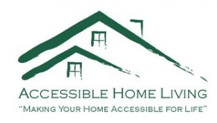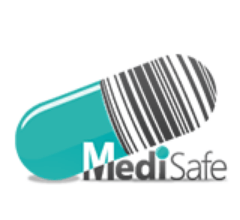Many people say information is power. I don’t believe that. Information sharing is power. People are more than willing to share information not because they are being paid but because they get a feeling of satisfaction that somebody else found their information useful. — Vint Cerf, Chief Internet Evangelist, Google, Inventor of TCP/IP
Many people say information is power. I don’t believe that. Information sharing is power. People are more than willing to share information not because they are being paid but because they get a feeling of satisfaction that somebody else found their information useful. — Vint Cerf, Chief Internet Evangelist, Google, Inventor of TCP/IP
In this quote, Cerf was describing the value of sharing in order to explain the phenomenal success of social media sites like Facebook and Twitter, but I found that it explained much of my own Internet behavior. I think the principle is so useful: People should optimize their online creative output in order to make the content more useful for others.
Facebook has a billion people on a single network. This is unprecedented in human history, and the incentive to be part of this network comes from friends, relatives, and acquaintances volunteering information to be shared. Everything people add is effectively controlled by a third, profit-motivated, party. One would think this would paralyze sharing, yet 293,000 statuses are updated and 136,000 photos are uploaded every minute. The biggest mystery surrounding Facebook is why so many donate their time, energy, and privacy to this endeavor. The reason is not magnanimous generosity, but rather that these hundreds of millions of people are getting satisfaction from sharing.
I am a teacher and blogger. I teach nephrology to medical students, residents, fellows, and an occasional attending physician. I share all of my teaching materials on my blog. When I share these materials, I share them in a way that makes them most useful for the reader. Handouts should not be limited to PDFs but should be available in their native, editable, word processing files. How is this more useful? If you are a student and want to get my lesson, grabbing the more versatile and lighter-weight PDF makes sense; however, if you are a teacher and want to adapt a figure, or a small segment of the handout, having access to the native files is critical. The greatest satisfaction I get as a networked teacher is when I get an e-mail or tweet from a colleague thanking me for making a handout or presentation.
What was so enlightening about the explanation from Cerf was seeing that sharing is not strictly generosity but is powered by self-interest: By increasing usefulness of the resource, I get more satisfaction.
PowerPoint presentations can be distributed multiple ways over the Internet: Presentations can be exported as PDFs, SlideShare presentations, PowerPoint shows, or as native .ppt or .pptx files. Some of those formats are Read Only: PDFs, SlideShare presentations, PowerPoint shows, in that they cannot be edited or remixed by the user. Native .ppt and .pptx files are Read/Write formats that allow the user to see the presentation and freely edit, copy, and reuse parts of it.
The NYU Division of Nephrology has weekly renal grand rounds done by the fellows. In the spirit of Internet sharing, they post every presentation on the division’s website. Every presentation is available only as a PDF. This form of sharing is strictly Read Only; providing the information only as a PDF limits users from remixing your content. Posting a presentation as a PDF says to users, “You can use my material, but only if you use all my information. The way I teach this subject is the only way to teach this subject and my information is eternal and infallible.”
However, the Internet is inherently a Read/Write culture. The optimal way to post those presentations is as native PowerPoint files (or Google Docs Presentations or Apple Keynote presentations) so future fellows can leverage previous work, adding new data, correcting mistakes, and reworking the old into the new. Make the materials you provide online flexible to make them more useful, because the source of your satisfaction is usefulness to others.
Medicine and medical education need to abandon the Read Only assumptions about teaching materials and embrace a Read/Write culture: Students can become participants in their own education, and authors of a personalized textbook. This is how I post presentations on my web site:
I first have a picture of one of the slides; this helps me fly through the growing list to find a specific presentation. Then I have the title and links to the native format and the PDF. The
PDF is useful for people who are looking for the Read Only experience and for people without the software needed to read the native file. It is important to provide both. After that, I have a few bullet points about the scope of the presentation: when it was last updated, weaknesses that need to be fixed. In this case, it has links to a supplementary handout, again as both native file and PDF. Other useful metadata includes how long the presentation is, and the size of the files.
One of the foundations of academic tradition is the ethic to attribute everything. I have seen professors seethe in national meetings as their slides or figures are used without attribution. I want to stress that providing easy ways for people to adapt and remix material in no way relieves them of the ethical obligation of attribution. In fact, attribution is another way to increase the usefulness of the work. Credibility is a primary ingredient in the usefulness of medical material, so a thorough chain of references is seen in the best medical adaptations of source material.
Putting up electronic locks in hope of dissuading people from using material without attribution is a failed strategy. It punishes the lawful without stopping the ruthless. And — importantly — if your effort to lock down your materials means that it is less useful to your audience, you get less satisfaction from sharing.
The currency of social media is sharing. If you want to build an audience and add value to whichever social media realm you occupy, you need to provide content that others can share.
If you create content, you want that content to be in a form that is most shareable. We live in a remix culture. People see content and they want to take change it, make it their own, and reshare it. Operating in the social media realm of medical education requires doctors to adapt to the customs of the realm and that means disposing the handcuffs of academic ownership and embracing the reason we are all educators: the dissemination of knowledge.









